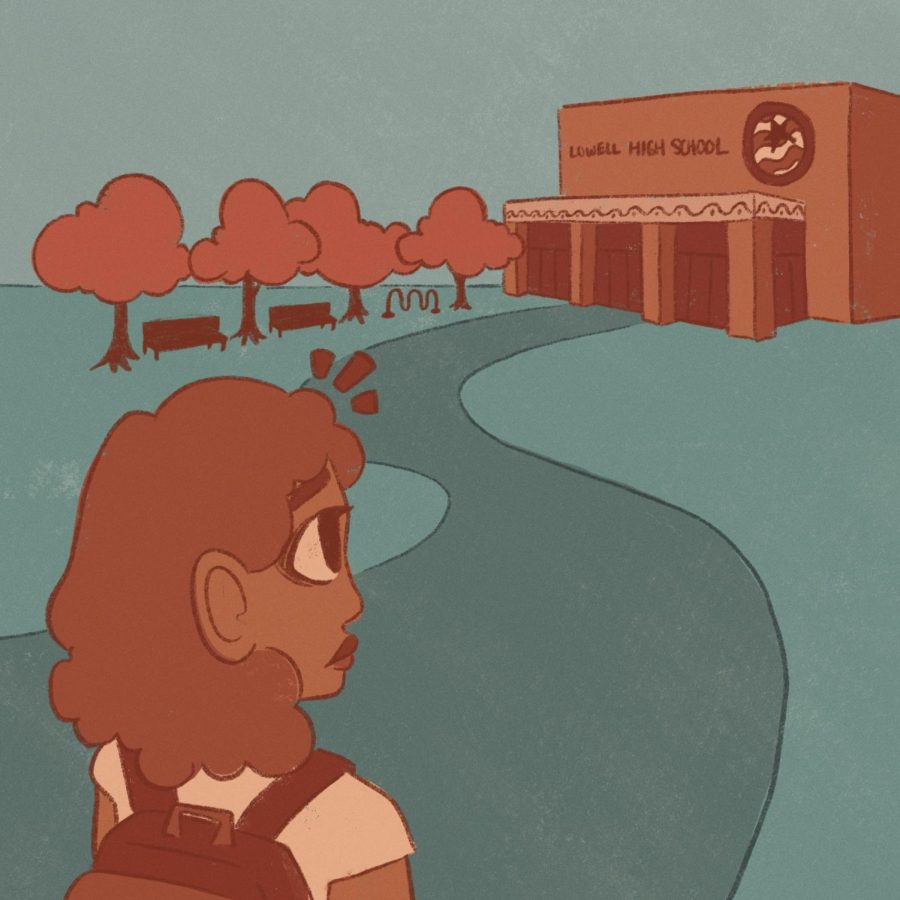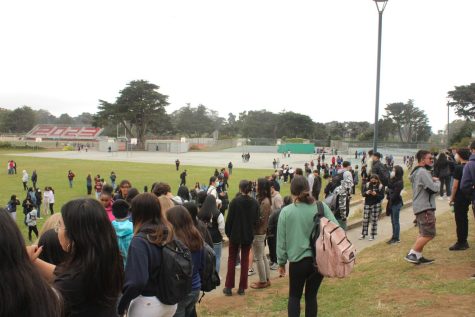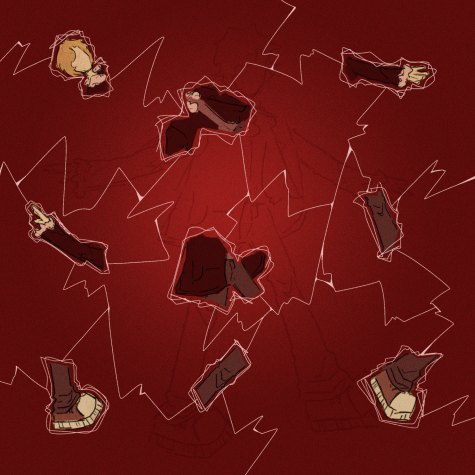Lowell’s transfer students share their experiences
Over 50 students transferred into Lowell at the start of the spring semester. We wanted to find out why they made the decision to come here, as well as how their experiences have gone so far, so we conducted interviews with a handful of them recently.
Freshman Chanmolyta Kim, a transfer student from Washington High School, looked at Lowell and saw chances that she wouldn’t be able to find elsewhere. “I feel like my old school didn’t offer a lot of opportunities,” Kim said. “I couldn’t take APs until my junior year.” Lowell’s website states that at Lowell, students are not only offered AP courses from sophomore year onward, but also have easy access to other extensive resources. These resources include sports programs spanning 27 sports and the largest visual and performing arts department in the city. Some students, including Kim, find that the variety of options and opportunities are a big enticement for students to transfer to Lowell.
Immediately upon transferring to Lowell, Kim noticed major differences in how teachers taught between her two schools. At her old school, “most of them just didn’t really care about you. They’d just assign this and then they wouldn’t really help you,” she said. “[Lowell teachers] provide more resources, and you’re not afraid to actually ask questions.”
Freshman Clogdagh McIntyre, who transferred at the beginning of the semester, felt similarly about Lowell’s staff. “I think what surprised me [about Lowell] is how much the teachers care about you,” she said. At Galileo, McIntyre felt that her teachers didn’t put in the effort to help their students, and they failed to give her classmates the help they required.
On the other hand, the transfers admit that a lot is demanded of every student. “I think that the teachers expect you to pick things up really quickly,” McIntyre said. “And they already expect you to know a lot of stuff going into [class]. It’s not just the assignment, you have to do more research.” Sophomore and Lincoln transfer Aiden Ji made similar observations. He said the school has an “independent learning system,” and believes that a lot of the classes were designed for students to learn by themselves, making life more difficult for him and his peers. “I feel like that shouldn’t be the case for all of the classes, because some can be very hard to understand,” Ji said. However, transfers are aware of Lowell’s notorious reputation for being difficult, and those interviewed stated that they knew what they were getting into.
Although Lowell transfer students expected the school to be difficult, not all of them expected the school’s supportive environment. “What surprised me was how tight the community was, like how nice everyone was,” sophomore and Lincoln transfer Annie Su said. Su is far from alone in this sentiment. Multiple transfer students said Lowell’s difficulty has led to a student body that focused primarily on academics, leaving no room for animosity. “Everyone is nice,” McIntyre said. “A lot of fights happened at Galileo. And I guess [at Lowell] everyone is more focused on learning.”
With the size of students’ workloads, creating conflict with others doesn’t seem to be much of a priority. “Everyone’s kind of taken to themselves,” Kim said. “Rather than always starting drama or always getting involved in everything, it seems like everyone just wants to pass.” McIntyre also noticed differences in her peers’ behavior caused by this increased difficulty. “At Galileo, people would always skip and they wouldn’t do their work and they wouldn’t make time to study,” McIntyre said. “Whereas all my friends now, if I have to study for a test or something, everyone gets it, or everyone will help me.”
Despite the changes in environment, by the end of the first grading period, not one of the transfer students interviewed regretted their choice to come to Lowell. While the increased workload is stressful, they are doing their best to manage the increased pressure and use it to benefit their studies. “At Wash, it felt like nobody actually cared about their school, and everyone was failing half their classes,” Kim said. “But here, people like me can do good because it’s so hard and rigorous.”

Thomas Harrison is a junior at Lowell. Outside of school, he loves to listen to music, go to concerts, and ignore his homework. His favorite artists include Underscores, Jane Remover, and Car Seat Headrest.












